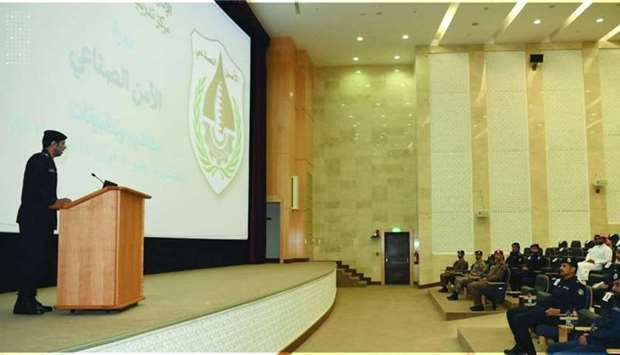The two-week 7th industrial security course for officers of the Gulf Co-operation Council (GCC), organised by the General Department of Industrial Security at the Ministry of Interior, kicked off Sunday in Doha, within the framework of security co-operation and co-ordination in the field of industrial security among the GCC states, QNA reported.
The course discusses many important topics, including the relationship of industrial security with the overall system of national security, industrial security tasks and duties, security risk management, security planning, industrial security and terrorism, crisis and emergency management, the relationship between industrial security and the police, the relationship between industrial security and occupational health and safety, security risk management processes, and risk assessment methods.
Assistant Director-General of Industrial Security Lt Col Rashid Mohamed al-Hajri stressed the importance of the course to enhance frameworks of co-operation and co-ordination between the Gulf states in oil and gas protection.
He said industrial security is an indispensable necessity to protect vital oil, gas, and other facilities, pointing out that one of the most important natural resources that countries seek to secure are energy sources, especially petroleum energy, which is the main engine of countries' economies.
Al-Hajri added that the world is witnessing security challenges that require developing new strategies and visions to enhance the protection of common internal and regional industrial interests and economies. He pointed out that the course represents a periodic meeting for GCC officers to discuss all matters related to industrial security, as one of the important pillars of Gulf security.
Al-Hajri stressed the importance of the course to develop the work system and exchange experiences among the GCC states and to raise industrial security to the required level of professional accuracy, objectivity and security expertise.
Assistant Director-General of Industrial Security Lt Col Rashid Mohamed al-Hajri stressed the importance of the course to enhance frameworks of co-operation and co-ordination between the Gulf states in oil and gas protection.
He said industrial security is an indispensable necessity to protect vital oil, gas, and other facilities, pointing out that one of the most important natural resources that countries seek to secure are energy sources, especially petroleum energy, which is the main engine of countries' economies.
Al-Hajri added that the world is witnessing security challenges that require developing new strategies and visions to enhance the protection of common internal and regional industrial interests and economies. He pointed out that the course represents a periodic meeting for GCC officers to discuss all matters related to industrial security, as one of the important pillars of Gulf security.
Al-Hajri stressed the importance of the course to develop the work system and exchange experiences among the GCC states and to raise industrial security to the required level of professional accuracy, objectivity and security expertise.

